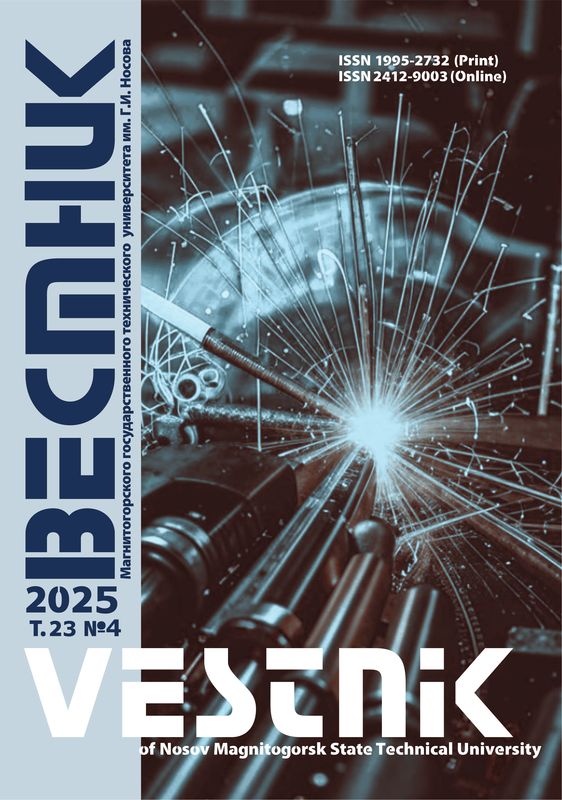DOI: 10.18503/1995-2732-2023-21-2-146-155
Abstract
Building heating requires up to 45% of all energy resources of this country. The quality and cost of heat supply is the most important condition for social stability and the formation of comfortable living conditions. A level of the thermal energy consumption even in residential buildings of the same type is extremely inhomogeneous. To plan and carry out work aimed at improving efficiency of heat supply of residential buildings, we need cheap and quick tools to identify the causes, having a major effect on the heat consumption of a residential building. Regarding such tool, it is proposed to use the dependence between heat power for heating a residential building and various factors. Source data for the analysis are taken from history logs of common building heat metering stations and data on average daily outdoor temperature and wind speed. When plotting the curve, we used methods of mathematical statistics, building thermal physics and utility networks of buildings and structures. The research revealed that the heating characteristic of the building varied during the heating period, indicating that the specific quantity of thermal energy for heating depended not only on the heat protection properties of the cladding, but also on other factors. The result of the research is a regression equation used to determine the quantity of thermal energy for heating depending on outdoor temperature, wind speed, heating medium temperature and available pressure drop at the input to the building.
Keywords
thermal power engineering, heat supply, thermal energy metering, thermal power characteristics, building heating characteristic
For citation
Gasho E.G., Fokin A.M. Determination of Thermal Power Characteristics of Buildings Based on the Analysis of Archival Data of Heat Metering Stations. Vestnik Magnitogorskogo Gosudarstvennogo Tekhnicheskogo Universiteta im. G.I. Nosova [Vestnik of Nosov Magnitogorsk State Technical University]. 2023, vol. 21, no. 2, pp. 146-155. https://doi.org/10.18503/1995-2732-2023-21-2-146-155
1. Pasynkov S.G., Tenyakova R.V. Analysis of the software suite operation in terms of thermal energy metering in housing and communal services. Energosberezhenie [Energy Saving]. 2008;(2):62-64. (In Russ.)
2. Gasho E.G., Gilev A.A. Balancing the energy parameters of buildings in the urban heat supply system. Energosberezhenie [Energy Saving]. 2015;(7):36-41. (In Russ.)
3. Livchak V.I. Actual heat consumption of buildings as an indicator of the quality and reliability of design. AVOK [Association of HVAC Engineers]. 2009;(2):4-14. (In Russ.)
4. Lupey A.G. Diagnostics of the state of heating systems of thermal energy consumers. SOK [Plumbing. Heating. Conditioning]. 2004;(8):48-52. (In Russ.)
5. Samarin O.D. Dependence between thermotechnical uniformity of external walls of residential buildings and their geometrical characteristics and climatic parameters. SOK [Plumbing. Heating. Conditioning]. 2022;(03(219)):52-54. (In Russ.)
6. Basalaev A.A. Predicting the consumption of thermal energy spent on heating and hot water supply. Nauka YuURGU: materialy 66-y nauchnoy konferentsii [SUSU Science: Proceedings of the 66th Scientific Conference]. Chelyabinsk: South Ural State University, 2014, pp. 633-638. (In Russ.)
7. Zavarzin B.B., Ryumin R.V., Chukarev A.G. A method for calculating heat loss for rooms. Molodoy uchenyi [Young Scientist]. 2017;(43(177)):40-43. (In Russ.)
8. Gasho E.G., Fokin A.M. Analysis of the dependence between thermal energy spent on heating and cooling buildings and various factors. SOK [Plumbing. Heating. Conditioning]. 2022;(02(242)):64-67. (In Russ.)
9. Borisov K.B. The influence of the heat supply quality on the actual heat loads of heating and hot water supply systems in apartment buildings. Experience of Kemerovo. Energosberezhenie [Energy Saving]. 2021;(7):58-67. (In Russ.)
10. Nemchenko V.I., Posashkov M.V. Methodology for assessing the quality of heat supply according to the commercial metering of heat energy. SOK [Plumbing. Heating. Conditioning]. 2019;(08(212)):44-47. (In Russ.)












